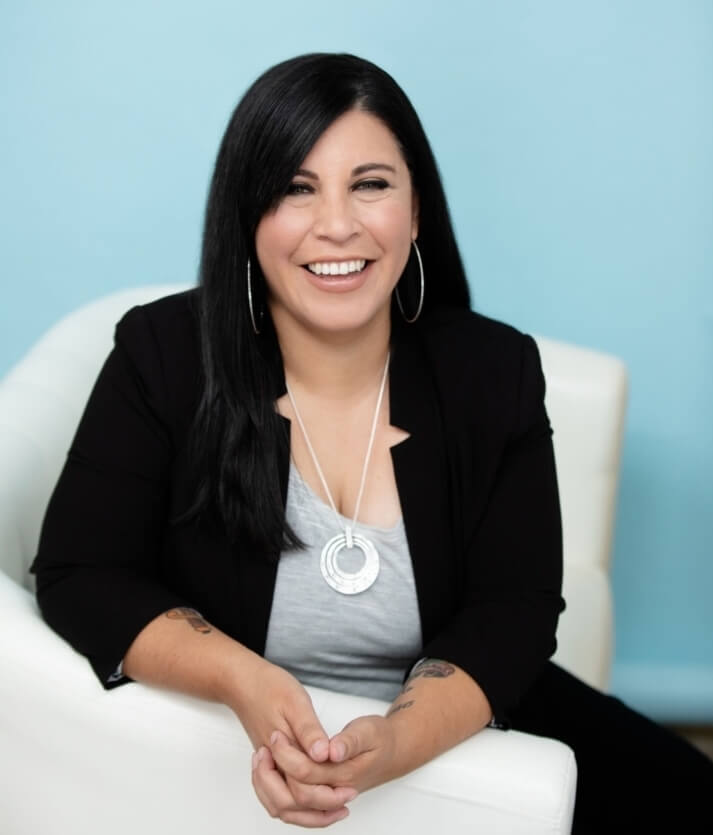
What I know about poverty comes from my own story. I was born into poverty and lived in it for most of my life. It was the norm for me. But it was not until I became a mother—struggling to feed and clothe my own children—that I realized just how much effort was involved in living in poverty.
Here are five things I wish others knew about poverty.
When I gave birth to one of my children, the nurse at the hospital said that it must be nice to get food through food stamps, because that meant I got free money without having to work. She couldn’t imagine our daily struggle.
Everyday was a creative effort to manage the pressures of normal life, plus the full-time stress of getting assistance through programs that only take appointments during business hours. I was constantly taking off work. And that cost money. I had to arrange childcare and find a ride. And that cost money. Then I would sit for hours waiting to be called into a humiliating interview about every detail of my life, every penny I had.
Using those benefits was an added stress. Take WIC, a food-assistance program that helps pregnant women and women with young children have access to milk, cheese, juice, and cereal. WIC is a nightmare. How many times did I end up at the register with a product that was not approved? When I was on WIC, the block of cheese that was approved had to be a certain weight. I frequently picked out the wrong size of cheese. It was easy to make mistakes, and then I’d have to leave the cash-out line, search the store for the approved product, and come back to a line of folks all waiting on me. The state of Texas produces a pamphlet to help you find the right products, but I was grocery shopping with four children all under the age of nine—juggling them meant that mistakes would happen no matter what.
Escaping poverty is like climbing a huge mountain with regular avalanches coming down. Every moment of achievement felt like it was held against me. If I earned too much pay, they gave me less assistance, so I felt punished whenever I was getting back on my feet. A good job, a working car—these assets counted against me. I even struggled to enjoy the birth of each of my four children because I was poor. The message that it was irresponsible to have children while poor was everywhere.
When I was poor, every decision felt like it worked against me, and ultimately the lesson was that my choices were not free choices for me to make. They were all guesses. All I knew is that I had to be very careful not to make the wrong decisions without knowing which ones were the right ones. It felt like walking through a minefield.
As a single mother waiting tables, I did not have a stable income because my tips were inconsistent. I had to figure out what bills to pay and what not to pay. When I paid my bills late, I incurred late fees.
Late fees create a downward spiral. Because they would sometimes not be assessed until I paid them, I would suddenly find out that I was now $15 short on a bill I thought I could pay. That $15 often meant an overdraft to my bank account, which triggered overdraft fees, which meant I couldn’t pay my next bill in the stack—maybe just $50 for the electricity bill that was already overdue. Next thing I know, my family was sitting in the dark with no AC and a fridge full of rotting food because of a late fee on the bill that I did not know about until it was too late.
An entire industry exists to profit off people in poverty. Payday loans bet on people who can’t afford things they need. The loan companies charge high late fees and hike up their interest rates, creating a money trap that is almost impossible to get free of. And because of overdraft fees, people go unbanked and end up relying on check cashing businesses just to get their pay. That comes with its own fee, as do the money orders you have to use to pay bills.
Every single dollar of these fees means less money for the grocery fund, which you still need, because food stamps are never enough.

I was the only child of a mother who was born to migrant workers. My mother taught me how to pay bills on time. When I was 16 years old, I started working 40 hours a week as a cashier at Long John Silver’s to help pay for bills and food. I understood the importance of being responsible.
And yet, I made mistakes. Everyone makes mistakes. But my mistakes led me to a lot of different consequences. My friends with resources made similar mistakes, but they did not have to face the same consequences.
At 18, I had a job but no driver’s license. We did not have the money for driver’s education, but I had to drive to work. Like many 18 year olds, I got a speeding ticket one day, and I was fined for driving without a license. I could not afford to pay for the fine, so it became a warrant. When I was 21 years old, I was arrested and spent two weeks in jail to pay the fine. I had my second baby four weeks before my arrest.
It was not a lack of responsibility that led me to being a young mother in jail. It was a lack of resources—every mistake I made sent me down further into the poverty rabbit hole.
When I was living in the depth of poverty, I wanted a garage fridge and a car that did not leave me stranded on the highway when it broke down. I wanted to go to college, and I wanted my children to go to college.
People living in poverty have dreams and hopes that are pretty much like yours. They are not dreams and hopes of cashing in on their welfare checks and not working. They are dreams of having a safe place for their families to live and to work a job that affords them food, vacations, and a trip to the doctor when they are sick.
I learned how to survive from my family, who always found a way even when it felt like there was no hope at all. The gift of grit and perseverance should not come because I found a way to keep my children fed and alive in a country that claims to be the most prosperous country in the world. If we truly have a right to life, the children of those who are born into poverty have the right to eat and thrive just like the children of those with money.
| Leticia Ochoa Adams is a wife, mother and grandmother who lives in Texas. As a freelance writer, she has contributed to The Catholic Hipster Handbook (Ave Maria Press) and Patrick Madrid’s Surprised by Truth (Sophia Press). Her work has appeared in numerous print and online publications including Our Sunday Visitor and Aleteia. Leticia was also a regular featured guest on the Jen Fulwiler Show on Sirius XM, and a sought after panelist at conferences, having most recently participated at FemCatholic and the Fall Conference at the deNicola Center for Ethics and Culture at the University of Notre Dame. Her website is leticiaoadams.com. |  |